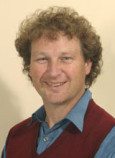Why there are two biological sexes and what this doesn't mean
Arguments about the number of sexes have recently become heated, part of the culture wars of the twenty-first century. But what do biologists mean by male and female? A talk by Distinguished Professor Hamish Spencer FRSNZ FISC.

"Some biologists are unhappy with the view of two biological sexes, arguing that dispensing with it would both lead to better science and support progressive social change.
"I argue, along with philosopher of biology Emeritus Professor Paul Griffiths, that such a move would be a grave scientific error. It would deprive biology of one of its most powerful tools for explaining biological diversity. I give several examples of the utility of the standard definition in evolutionary biology, such as an explanation for why there are, in fact, just two sexes, and how different characteristics become associated with different sexes in different species.
I then identify some of the errors the critics make. Most notably, they assume that the scientific value of sexual categories depends on females sharing some essence of femaleness (and similarly for males). But this “essentialist” approach is rejected by evolutionary biologists, since it plays no role in the models that explain the evolution of sexes and sex-associated phenotypes. Moreover, the concept of biological sex is critical for understanding the evolution of the human reproductive system and why humans differ from other species.
"It is important to realise that the standard definition of sex does not imply that there are just two sorts of (human) individuals. Because sex is different from “sex roles”, gender and cultural practices, I also point out that biological sex is no constraint on human diversity. Finally, I note that keeping the standard biological definition of sex does not mean that (i) gender is binary, (ii) gender is biologically determined, or (iii) scientists have not used sexist language and stereotypical concepts.
"In short, this talk aims to help navigate a knotty problem of our time."
- Hamish Spencer
Biography
Hamish Spencer is Emeritus Sesquicentennial Distinguished Professor in the Department of Zoology at the University of Otago. Educated at the University of Auckland and Harvard University, Hamish has broad research interests, ranging from modelling genetic changes in human, animal and plant populations, to using molecular-genetic methods to study the evolution of flora and fauna. In collaboration with historians, he has written about eugenics, first-cousin marriage and Robert FitzRoy.
In 2009 Hamish was elected a Fellow of the Royal Society of New Zealand and in 2016 won the Society’s Callaghan Medal for science communication. That same year Hamish was appointed as Science Advisor at MBIE, a position he held for five years. He was awarded a James Cook Research Fellowship by the Royal Society Te Apārangi in 2022, and was elected a Fellow of the International Science Council in 2023.

SPEAKER
Hamish G. Spencer FRSNZ FISC
Emeritus Sesquicentennial Distinguished Professor
ORGANISATION
Wellington Branch of the Royal Society Te Apārangi
VENUE/DATE
Royal Society Te Apārangi, 11 Turnbull St, Thorndon, Wellington
6:00pm Wed 5 November, 2025 - 7:00pm Wed 5 November, 2025
